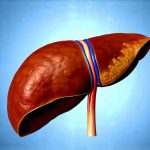The concept of “detoxification” has become increasingly popular in recent years, often marketed as a quick fix for various health concerns and promising renewed energy, clearer skin, and weight loss. However, the human body is remarkably efficient at naturally detoxifying itself through established organs like the liver, kidneys, lungs, and digestive system. These organs constantly work to eliminate waste products and toxins without needing restrictive diets or specialized programs. The allure of a “detox” often stems from the idea that modern life exposes us to an overwhelming amount of toxins, requiring extra intervention. While it’s true we encounter environmental pollutants and potentially harmful substances daily, relying on unproven detox methods can sometimes do more harm than good—particularly if you are prone to nausea or have underlying health conditions.
Many detox programs involve drastic dietary changes, such as severely restricting food intake, eliminating entire food groups, consuming only liquids (juice cleanses), or taking specific supplements and herbal remedies. These aggressive approaches often disrupt the body’s natural equilibrium and can trigger unpleasant side effects, including fatigue, headaches, diarrhea, and notably, nausea. It’s important to understand that experiencing these symptoms doesn’t necessarily indicate successful detoxification; it may signify your body is struggling to cope with a sudden and unnatural shift in its usual processes. The focus should be on supporting the body’s inherent detox capabilities through sustainable healthy habits rather than relying on temporary, potentially disruptive interventions. Consider incorporating gut-friendly dishes into your routine for a more balanced approach.
Understanding Nausea & Detox Programs
Nausea isn’t simply discomfort—it’s a complex physiological response triggered by numerous factors. It can stem from imbalances in the digestive system, neurological issues, hormonal fluctuations, or even psychological stress. Detox programs often exacerbate these existing vulnerabilities. For example, rapid changes in diet, like those found in juice cleanses or elimination diets, can overwhelm the stomach and intestines, leading to irritation and nausea. The sudden removal of familiar foods forces the digestive system to work harder without its usual fuel sources, potentially causing instability. Furthermore, some detox supplements contain ingredients that are known to induce nausea in sensitive individuals.
- Herbal remedies like senna or cascara sagrada, frequently used for their laxative effects in detox programs, can cause significant gastrointestinal distress and dehydration.
- High doses of vitamins or minerals, sometimes promoted as part of a detoxification process, can also upset the stomach and trigger nausea.
- The very act of restricting calories severely can lead to low blood sugar (hypoglycemia), which is a well-known contributor to nausea.
The psychological component should not be overlooked either. Strict dietary rules and the pressure to “detox” can create anxiety and stress, both of which are linked to increased nausea sensitivity. Individuals with a history of eating disorders or gastrointestinal issues are particularly vulnerable to experiencing negative side effects from detox programs due to their heightened sensitivities and pre-existing conditions. It’s vital to remember that feeling nauseous isn’t proof of purification; it may be a sign your body is reacting negatively. If you find yourself frequently battling nausea, exploring can frequent nausea can offer valuable insights.
Many marketing campaigns for detox products emphasize the removal of “toxins” without clearly defining what those toxins are or how they’re eliminated. Often, these programs focus on eliminating foods perceived as unhealthy – like gluten or dairy – without considering individual tolerances or nutritional needs. This can lead to nutrient deficiencies and further compromise overall health, potentially making nausea worse by weakening the body’s ability to cope with stress and illness. A balanced diet rich in whole foods provides all the necessary nutrients for natural detoxification processes, rendering these restrictive programs largely unnecessary. Low-acid salad dressings can be a gentler addition to your diet if you suspect food sensitivities are contributing factors.
Why Juice Cleanses are Particularly Problematic
Juice cleanses have become synonymous with detoxifying, but they present a unique set of challenges regarding nausea. While fruits and vegetables are beneficial components of a healthy diet, isolating them into juice form removes essential fiber. Fiber plays a crucial role in regulating digestion and slowing down the absorption of sugars. Without it, the body experiences a rapid influx of fructose (fruit sugar), which can overwhelm the digestive system and lead to bloating, diarrhea, and ultimately, nausea.
Juice cleanses often lack sufficient protein and healthy fats, further contributing to instability within the gut. This imbalance disrupts the delicate microbiome—the community of bacteria living in your intestines—which is essential for proper digestion and overall health. A compromised microbiome can be more susceptible to irritation and inflammation, increasing the likelihood of nausea. The rapid changes in sugar levels associated with juice cleanses can also cause reactive hypoglycemia, where blood sugar drops quickly after an initial spike, leading to dizziness, weakness, and nausea.
Furthermore, many commercially available juice cleanses are pasteurized, meaning they’ve been heated to kill bacteria. While this makes them safer, it also destroys some of the beneficial enzymes that aid in digestion. This places an even greater burden on the digestive system, making it more prone to irritation and discomfort. A truly effective approach focuses on whole foods rather than isolating nutrients into juice form. If you suspect sleep deprivation is exacerbating your digestive issues, prioritizing rest can be a crucial step towards relief.
The Role of Supplements & Herbal Remedies
Detox programs frequently incorporate a range of supplements and herbal remedies marketed as aids in detoxification. However, many of these ingredients can actively contribute to nausea. For instance, certain herbs used for their purported detoxifying properties – like dandelion root or milk thistle – can have diuretic effects, leading to dehydration and electrolyte imbalances. Dehydration is a common cause of nausea, creating a vicious cycle where the attempted “detox” exacerbates the very symptoms it’s supposed to alleviate.
- Supplements containing high doses of Vitamin C can irritate the stomach lining in some individuals, triggering nausea.
- Laxatives, often included to “flush out toxins,” can disrupt gut motility and lead to dehydration, both contributing to nausea.
- Some herbal remedies interact with medications, potentially causing adverse side effects including nausea.
It’s essential to be aware that supplements are not rigorously regulated like pharmaceuticals. The quality and purity of ingredients can vary significantly, and some products may contain contaminants or inaccurate dosages. This lack of standardization increases the risk of experiencing unwanted side effects, including nausea. Before taking any supplement, it’s crucial to consult with a healthcare professional to ensure its safety and appropriateness for your individual health status. Understanding bloating and its potential impact on mental clarity can also contribute to a more holistic understanding of digestive wellbeing.
Supporting Natural Detoxification – The Healthy Approach
Instead of resorting to restrictive detox programs that can worsen nausea, focus on supporting your body’s natural detoxification processes through sustainable lifestyle changes. This involves prioritizing a balanced diet rich in whole, unprocessed foods, including plenty of fruits, vegetables, lean proteins, and healthy fats. Staying adequately hydrated by drinking sufficient water throughout the day is also crucial for flushing out waste products and maintaining digestive health.
Regular exercise promotes circulation and helps eliminate toxins through sweat and respiration. Managing stress levels through techniques like yoga, meditation, or spending time in nature can reduce cortisol levels, which contribute to inflammation and digestive upset. Getting enough sleep allows your body to repair and regenerate, optimizing its natural detoxification capabilities. The key is consistency – adopting these healthy habits as a long-term lifestyle rather than pursuing temporary, quick-fix solutions. If you experience shortness of breath after meals, it’s worth investigating GERD as a potential cause.
If you are experiencing persistent nausea, it’s essential to consult with a healthcare professional to rule out any underlying medical conditions. Self-treating with detox programs can mask serious health problems and delay appropriate treatment. Remember that your body is already equipped to handle detoxification; the best approach isn’t to force it into unnatural processes but rather to support its inherent abilities through healthy, sustainable habits.


















